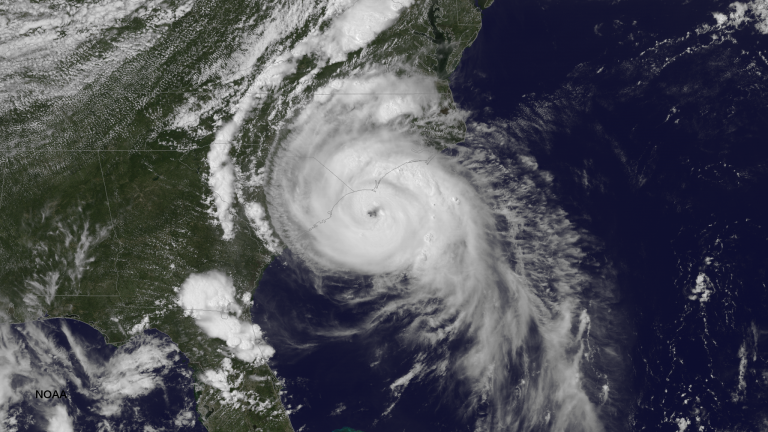Relatively quiet Atlantic hurricane season ends

A NOAA satellite image of Hurricane Arthur on July 3, 2014. (Credit: NOAA.)
The 2014 Atlantic hurricane season ended as a relatively quiet period as predicted, forecasters said.
The season, which runs from June 1 until Nov. 30, featured eight named storms that packed winds in excess of 39 miles per hour or higher, according to the National Weather Service.
Hurricane Arthur, which struck North Carolina in early July, was the only tropical system to make landfall along the Eastern Seaboard.
“Fortunately, much of the U.S. coastline was spared this year with only one landfalling hurricane along the East Coast. Nevertheless, we know that’s not always going to be the case,” said Louis Uccellini, Ph.D., director of NOAA’s National Weather Service. “The ‘off season’ between now and the start of next year’s hurricane season is the best time for communities to refine their response plans and for businesses and individuals to make sure they’re prepared for any potential storm.”
NOAA’s Climate Prediction Center issued the following table comparing the final outcome and earlier outlooks:
|
Actual |
August Outlook |
May Outlook |
|
|
Named storms (top winds of 39 mph or higher) |
8 |
7-12 |
8-13 |
|
Hurricanes (top winds of 74 mph or higher) |
6 |
3-6 |
3-6 |
|
Major hurricanes (Category 3, 4, 5; winds of at least 111 mph) |
2 |
0-2 |
1-2
|
Numerous factors influenced the relatively quiet season, according to Gerry Bell, Ph.D., lead hurricane forecaster at NOAA’s Climate Prediction Center.
“A combination of atmospheric conditions acted to suppress the Atlantic hurricane season, including very strong vertical wind shear, combined with increased atmospheric stability, stronger sinking motion and drier air across the tropical Atlantic,” Bell said. “Also, the West African monsoon was near- to below average, making it more difficult for African easterly waves to develop.”
The 2015 Atlantic hurricane season begins June 1.
WHYY is your source for fact-based, in-depth journalism and information. As a nonprofit organization, we rely on financial support from readers like you. Please give today.

